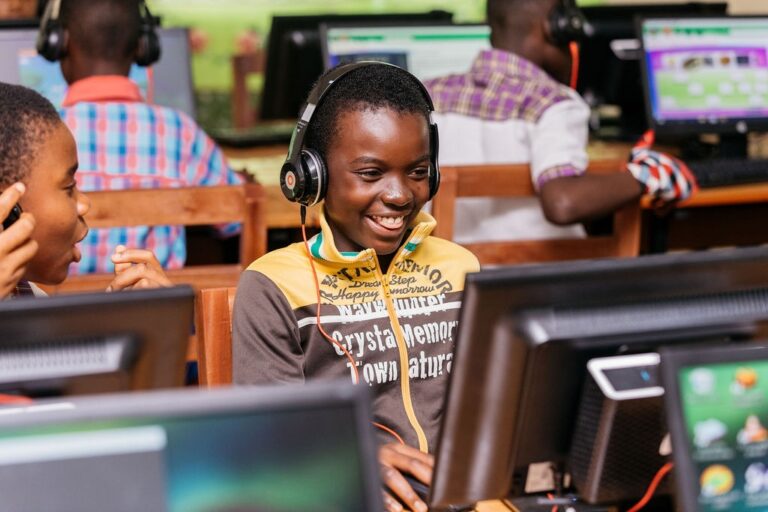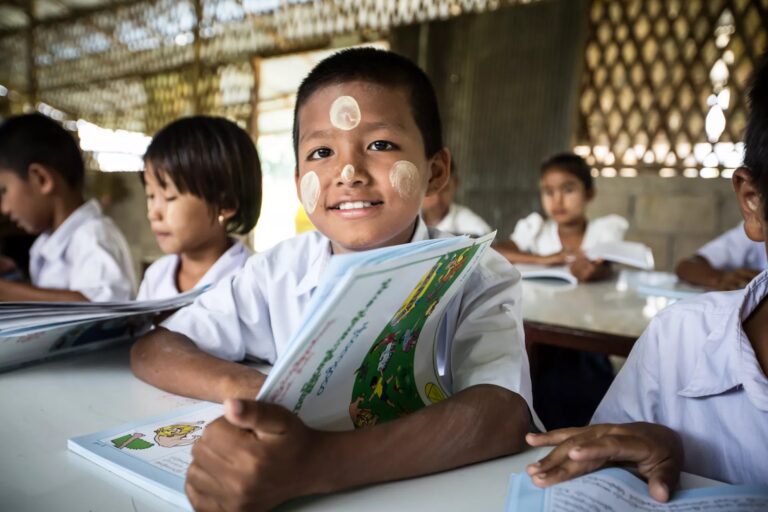By Natalie Stechyson 15 January, 2018
But they’re also incredibly resilient.
Not being able to speak the same language as their new peers. Exposure to violence in their country of origin. Being separated from family members.
These are just some of the unique factors faced by children who are new to Canada — particularly by refugees — that could put them at risk for mental health issues, according to the Canadian Paediatric Society’s (CPS) guide for health professionals who work with immigrant and refugee children and youth.
“If we address these challenges early when kids come to Canada, then we promote resiliency and we promote a holistic sense of well-being,” Dr. Mahli Brindamour, a paediatrician in Saskatoon and member of CPS’s Caring for Kids New to Canada taskforce, told HuffPost Canada in a phone interview.
“And when we address all these needs, the children will do better in school, they will do better in the future, they will adapt better to their new environment, and be able to thrive and access their full potential.”
CPS tweeted the guide Monday morning using the #BlueMonday hashtag, along with a reminder for doctors to support the mental health needs of kids who are new to Canada. While the guide isn’t new, CPS is one of several Canadian organizations including the Government of Canada and the Centre for Addiction and Mental Health that used Blue Monday (which is described as the most depressing day of the year) as an opportunity to open up a dialogue on mental health.
Immigrant and refugee mental health
 GETTY IMAGES/ISTOCKPHOTO
GETTY IMAGES/ISTOCKPHOTOCanada accepted more than 296,000 permanent residents in 2016, and more than 62,000 of those were re-settled refugees, the Government Canada said in a 2017 report to parliament on immigration. Approximately 78,000 permanent residents were admitted in the “family class,” the report noted.
Canada’s mental health response for refugees needs to recognize the “tremendous resilience of refugee populations” as well as focus on fostering wellness, The Mental Health Commission of Canada wrote in a 2016 report.
“Special attention needs to be paid to the unique needs of individual refugees — their experiences of trauma, loss, separation from family and friends, their hopes and goals for the future,” the commission wrote.
Risks for immigrant and refugee children
 CLOVERPHOTO VIA GETTY IMAGES
CLOVERPHOTO VIA GETTY IMAGESThe risks for children vary by age, culture, region of origin, and the journey children took to come to Canada, Brindamour said.
“Children who come to Canada as refugees may have experienced violence, abuse, may have been out of school for a long time which can have an effect on the mental health, they can be separated from their family, which can of course influence their mental health, as well. We have kids who have been involved in war as child soldiers and are experiencing the effect of that trauma, as well,” she said.
And the very fact that newcomer children have been separated from their country of origin can influence their mental health, Brindamour said.
“Once they come here, their life isn’t necessarily as easy as their host country counterparts,” she said.
Anyone who has been exposed to adverse childhood events can experience signs of trauma, which can manifest later on as irritability, behavioural trouble, sleeping and eating difficulties, post-traumatic stress disorder, depression, and anxiety, Brindamour said.
Protective factors — such as living in a stable and supportive environment — can help mitigate the risks of mental health issues in refugee and immigrant children, Brindamour said. But if these aren’t in place when the children arrive in Canada, the risk factor for mental health challenges will be greater.
‘Trauma-aware care’
 SELECTSTOCK VIA GETTY IMAGES
SELECTSTOCK VIA GETTY IMAGESDoctors often look for signs that a child isn’t coping or adjusting well, Brindamour said. This is called “trauma-aware care,” she added, and can include poor appetite, difficulty concentrating, difficulty with sleeping, nightmares, bed wetting in older children, and behavioural issues.
“We’re really quite careful to look for these signs and to be open, making it clear to children and their parents that we’re open to talking about mental health, while not necessarily probing for specific experiences of violence or specific experiences of trauma that the child may have experienced,” Brindamour said.
There also needs to be some cultural awareness since mental health is often understood differently across cultures, Brindamour said.
For instance, stigma about mental illness is felt more strongly in some cultural communities than others, CPS noted in its handout. Shame and fear of rejection can be a big part of this, CPS said.
“Families often worry that they or their child will be rejected by their community.”
A ‘very resilient’ population
 SERTS VIA GETTY IMAGES
SERTS VIA GETTY IMAGESWhile some studies show that refugee children are at higher risk for mental health problems (especially in the first few years after arrival), those studies don’t necessarily take into account individual and family protective factors, Brindamour said. Other studies show no difference in the rates of mental health problems between immigrant and non-immigrant children.
Most refugee children fare quite well, Brindamour said. You wouldn’t necessarily screen for traumatic events in children who appear to be coping well with their day-to-day life because of the risk of re-traumatization, she said.
“Usually kids who are new to Canada do very well and are healthy, but it’s important to identify children who might struggle a little more so that we can help them overcome a small bump in the road or a bigger challenge so that everybody can fulfill their full potential after coming to Canada,” Brindamour said.
“As health care providers, we can develop a compassionate way, and a trauma-informed way of caring for this very interesting and very resilient population.”



![[Preliminary Report] CRNA Collaborative Research for Exploring Factors Nurturing"Happy and Resilient" Children among Asian Countries](https://equity-ed.net/wp-content/uploads/2024/09/1725672182698.jpg)


